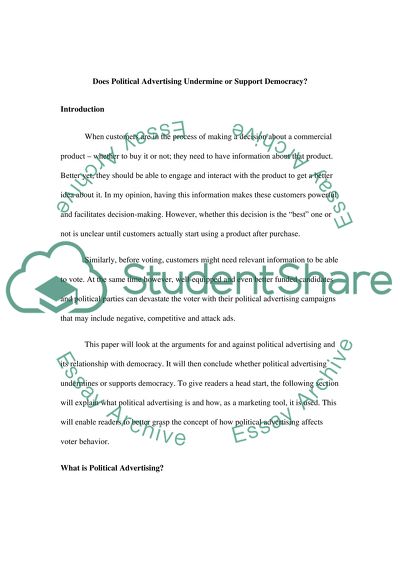Cite this document
(“Political Communication in the Global Age - Does political advertising Essay”, n.d.)
Retrieved from https://studentshare.org/miscellaneous/1571859-political-communication-in-the-global-age-does-political-advertising-undermine-or-support-democracy
Retrieved from https://studentshare.org/miscellaneous/1571859-political-communication-in-the-global-age-does-political-advertising-undermine-or-support-democracy
(Political Communication in the Global Age - Does Political Advertising Essay)
https://studentshare.org/miscellaneous/1571859-political-communication-in-the-global-age-does-political-advertising-undermine-or-support-democracy.
https://studentshare.org/miscellaneous/1571859-political-communication-in-the-global-age-does-political-advertising-undermine-or-support-democracy.
“Political Communication in the Global Age - Does Political Advertising Essay”, n.d. https://studentshare.org/miscellaneous/1571859-political-communication-in-the-global-age-does-political-advertising-undermine-or-support-democracy.


